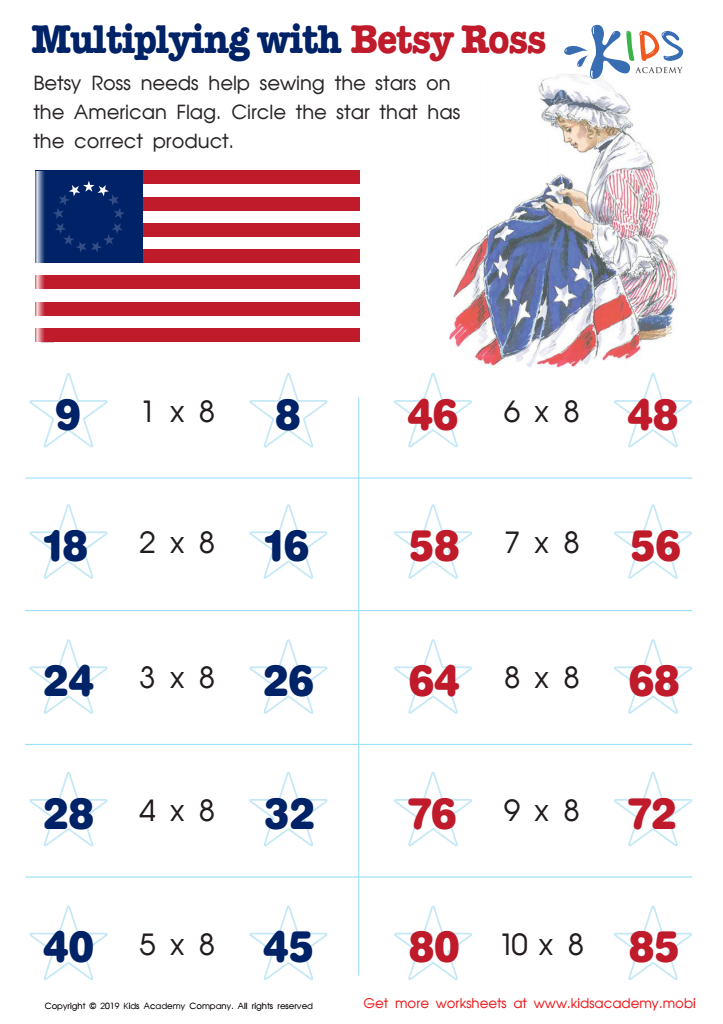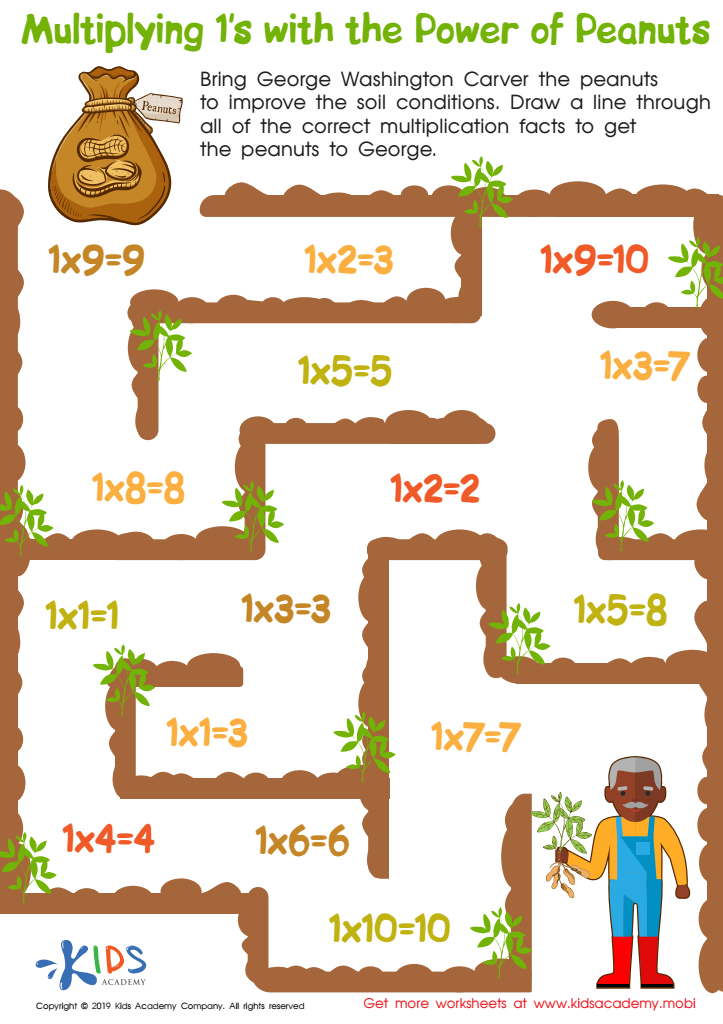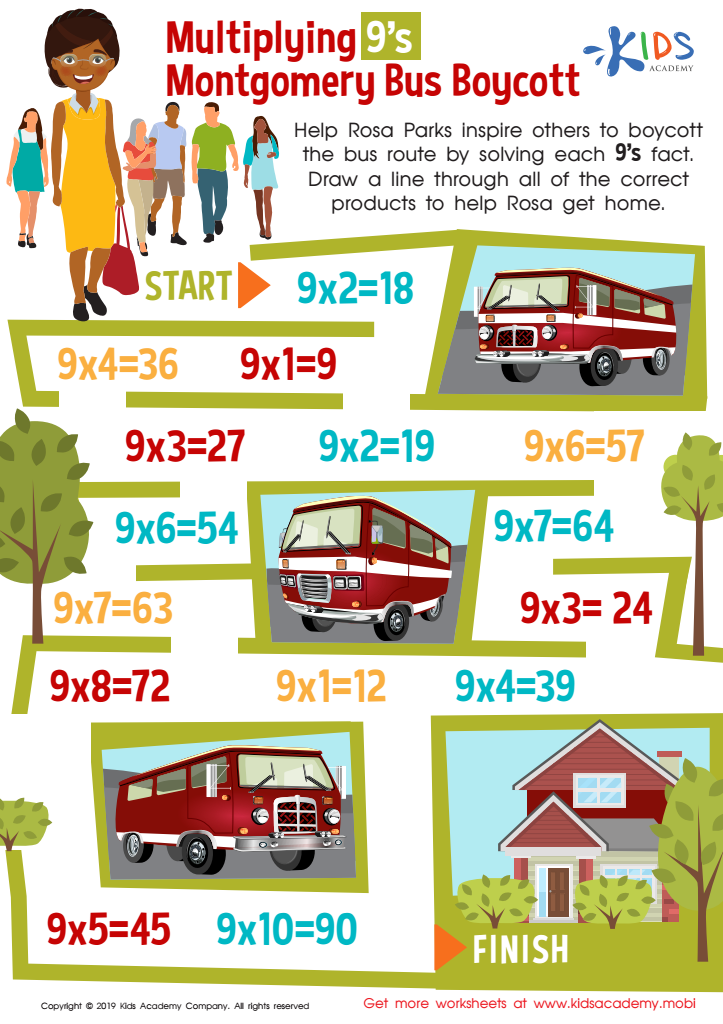Multiplication practice Normal Social Studies Worksheets
3 filtered results
-
From - To
Welcome to our Multiplication Practice Normal Social Studies Worksheets! Designed for early grade learners, these engaging worksheets blend mathematical skills with essential social studies concepts. Students can reinforce multiplication through real-world scenarios, making math relevant and exciting. Our printable resources foster problem-solving skills, encourage critical thinking, and support students' understanding of social studies themes. Each worksheet is crafted to align with educational standards, ensuring that learners not only improve their multiplication abilities but also deepen their awareness of cultural and societal topics. Enhance your teaching toolkit today and watch your students thrive in both math and social studies!


Multiplying with Betsy Ross Worksheet


Multiplying 1’s With the Power of Peanuts Worksheet


Multiplying 9’s Montgomery Bus Boycott Worksheet
Parents and teachers should care about multiplication practice in the context of normal social studies for several compelling reasons. First, multiplication is a foundational mathematical skill that transcends individual subjects. It is vital for understanding more complex mathematical concepts, which are increasingly present in social studies, such as data interpretation in graphs and statistics, budgeting for projects, and comprehending demographic information.
Furthermore, incorporating multiplication practice into social studies helps students see connections between subjects. For example, when students study population growth or resource allocation, they often encounter multiplication in calculating totals, rates, or percentages. This real-world application fosters critical thinking and problem-solving skills.
Moreover, consistent multiplication practice builds students' confidence in their mathematical abilities, enabling them to engage more deeply in social studies discussions, projects, and assessments. Familiarity with multiplication enhances their capability to tackle diverse topics, from historical timelines to economic modeling, promoting overall academic success.
Lastly, reinforcing multiplication skills supports lifelong learning habits. Parents and teachers play a crucial role in cultivating these foundational skills, empowering children to navigate future educational challenges more effectively. When students are proficient in multiplication, they are better equipped to understand and interpret the complexities of the world around them.
 Assign to My Students
Assign to My Students















